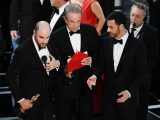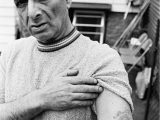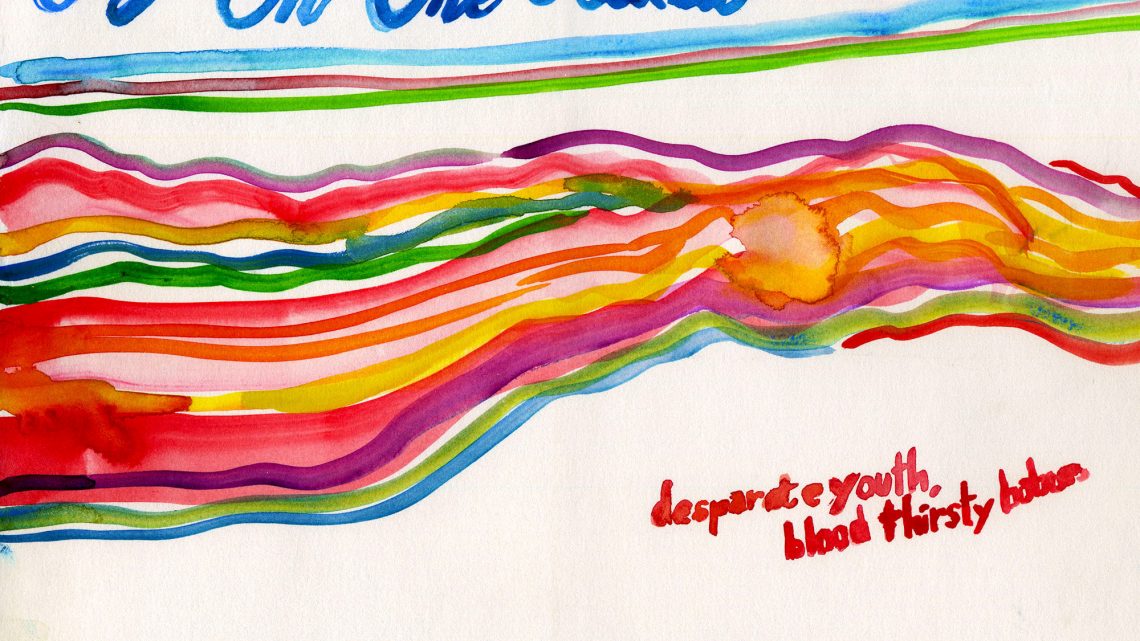
My Search for TV on the Radio’s Mythical Williamsburg
September 18, 2018In 2010, I moved 500 miles away from the creature comforts of my parent’s McMansion in the suburbs of Cleveland to a $1,800 one-bedroom in Williamsburg, Brooklyn with three white boys. As a wannabe writer and aspiring musician, I was chasing that mythic community of hipster artists and oddballs that spawned my favorite band, TV on the Radio. I figured that if a mostly black art rock band who played a chaotic mashup of noise, funk, and electronic music and sang about interracial relationships and the end of the world could thrive in Williamsburg, then it was where my weird black-ass needed to be. Naturally, the soundtrack for my move was TVOTR’s strongest album, Dear Science, a record that captured my post-Bush despondency and naive Obama optimism. Looking back at the album a decade after its 2008 release, the album says so much to me about the Williamsburg I foolishly dreamt up in my dorm room in Ohio and the “rest stop for the dead” that I found when I finally got here.
While TVOTR’s music was far more eclectic than a lot of their revivalist peers, the band will always be linked with the indie rock scene that formed in Brooklyn in the wake of 9/11. As the Fader put it back in 2009, TVOTR embodies the non-conformist spirit of Brooklyn, “where you expect your neighbors to make noise or art or at the very least debauchery until the smallest, most microscopic hours of the night and they expect exactly the same of you.”
They had this reputation for a good reason. Frontman Tunde Adebimpe and producer/multi-instrumentalist David Sitek started the band while they were roommates in a rundown loft in Williamsburg in the late 90s. And Tunde brought Kyp Malone, who provides the band with its famous falsetto and spazzed out guitar riffs, into the fold after sparking up a conversation with the former barista at Bedford Avenue’s defunct Verb Cafe. Tunde also met the band’s late bassist, Gerard Smith, on the subway platform of the Bedford L train while he was busking for cash. According to Tunde, this was before the Bedford stop was a “cat-walk,” back when “it was alright to look like a total scumbag.”
Sitek’s production work for some of New York’s most exciting bands at the time, like the Yeah Yeah Yeahs, also helped put TVOTR at the center of the city’s creative universe. Their debut EP was really recorded as an exercise for him to learn new skills, so he could produce for other neighborhood acts. “The only reason we [recorded Young Liars] was [...] because I was about to start producing the Liars’s [ They Were Wrong, So We Drowned] and I had no idea how to use ProTools,” Sitek blithely told Pitchfork in 2010.
Even as the band began to garner nationwide acclaim, with the release of their stunning debut album, Desperate Youth, Bloodthirsty Babes, their ties to the local Williamsburg didn’t wane. In 2006, on the heels of their flawless sophomore release, Return to Cookie Mountain, they were still posting castings for their music videos on BrooklynVegan, uploading pics of them recording in Sitek’s studio in Williamsburg to Flickr, and beefing with old Williamsburg roommates about “unearthed” Karen O demos that were unceremoniously published online.
I was following a lot of this stuff over the internet as a rabid fan hundreds of miles away physically and a millions miles away culturally, wishing I could just breathe the same garbage-scented air as these guys, because TV on the Radio was the band that I had been waiting most of misspent adolescence for.
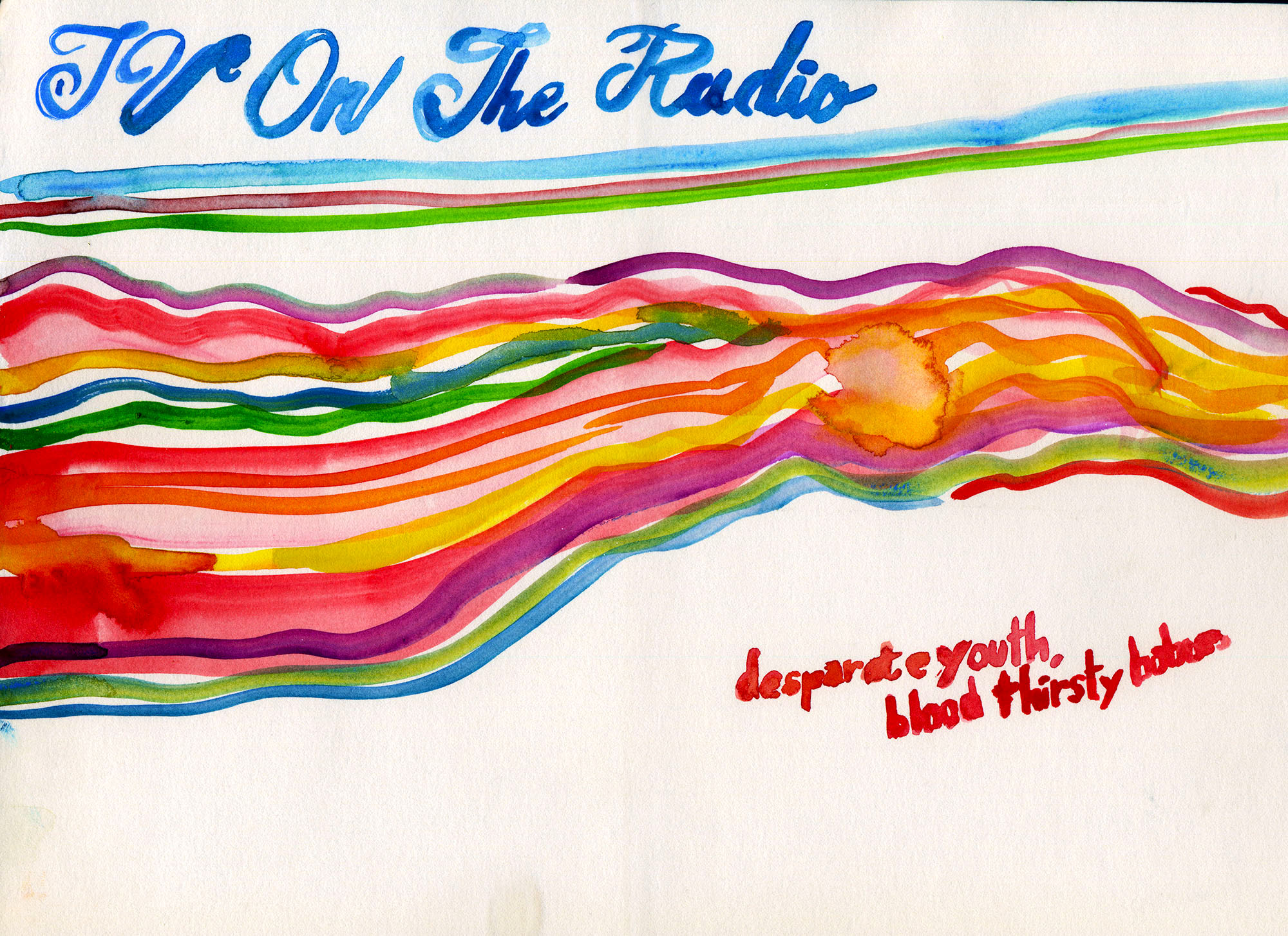
You see, I was raised in an excruciatingly white suburb on the West side of Cleveland. At the schools I went to growing up, there were very codified roles that kids fit into and they were often framed along racial lines. What was considered black was incredibly narrow—you were expected to be an athlete at best, or a troublemaker at worst. What wasn’t considered black by some was as depressing as it was vast—things like cleanliness, two-parent households, middle-class income… and of course, rock music.
But like most of the backward perceptions held by some in my community, my family didn’t conform to their expectations. I grew up in a house where Ziggy Stardust and Dr. Funkenstein were not gerrymandered off into different universes, where the dots between Prince and Nine Inch Nails were readily connected at the dinner table, and where Chuck Berry was always the King of Rock n’ Roll. Unfortunately, all of this seemed like ancient history at the turn of the century. In the early 2000s, I didn’t feel like there was any major contemporary rock band who was really speaking to my experience as a young black man.
And then I heard TV on the Radio. It happened in the spring of 2004, my freshman year. I was riding in the backseat of a car full of white people en route to an outdoor Radiohead concert. The first words I heard Tunde croon were, “I woke up in a magic nigga movie with bright lights pointed at me, as a metaphor, teaching folks the score about patience, understanding, agape babe, and sweet sweet amor.” It touched me because I felt this line articulated that eerie feeling of being black in a white space and feeling that pressure to make other people feel comfortable with your existence. It was so relatable to me in that moment, it felt like I had willed the song into existence, just because I needed to hear these words reaffirmed by another person, so I wouldn’t feel so crazy or so alone.
From then on, TV on the Radio was my band. I even switched my style from aping Kanye West’s pink polos and Pharrell’s streetwear for the tight jeans, ankle boots, and full-rimmed glasses that I imagined Tunde might wear hanging out at the Union Pool. Through TV on the Radio, I fell in love with a number of other excellent Brooklyn bands like the Dirty Projectors and Grizzly Bear, and even exciting lesser-known local acts like Ninjasonik and Shilpa Ray and Her Happy Hookers. And in college, I used TV on the Radio’s “I Was a Lover,” the opening track from their sophomore album Return to Cookie Mountain, as a sort of acid test for potential friends. It was an assholish, snobby thing to do—but the song helped me cut the wheat from the chaff and land a few lifelong pals. Nearly all of the friends I connected with over the love of Brooklyn bands like TV on the Radio made the move with me to NYC years later and became my roommates, my bandmates, and my fiancé.
Ironically, my fool-hardy embrace of a place I’d only read about on blogs and album liner-notes happened around the same time that my favorite band started to become disenchanted with Williamsburg. During their press run for Dear Science, their interviews took on a foreboding tone, signaling that whatever was special about their old stomping grounds was being squeezed out. “I guess this is the year that a lot of the buildings have gotten completed and a lot of people are moving into them, so if you were thinking that the fix wasn’t in before, not only is the fix in now but it’s occupying an entire floor of that beautiful glass and steel condominium,” Tunde told the Brooklyn Rail in 2008.
A year after Dear Science’s release, David Sitek’s Williamsburg Stay Gold studio closed up shop. By that time, he’d recorded everyone there, from the Knife and David Bowie to Massive Attack and Saul Williams. Upon its closure, Sitek sent out an email to fans, writing, "There are more strollers, cops on every corner, and about 16 more Thai restaurants now… The price of Williamsburg really pushed out a lot of talented people."
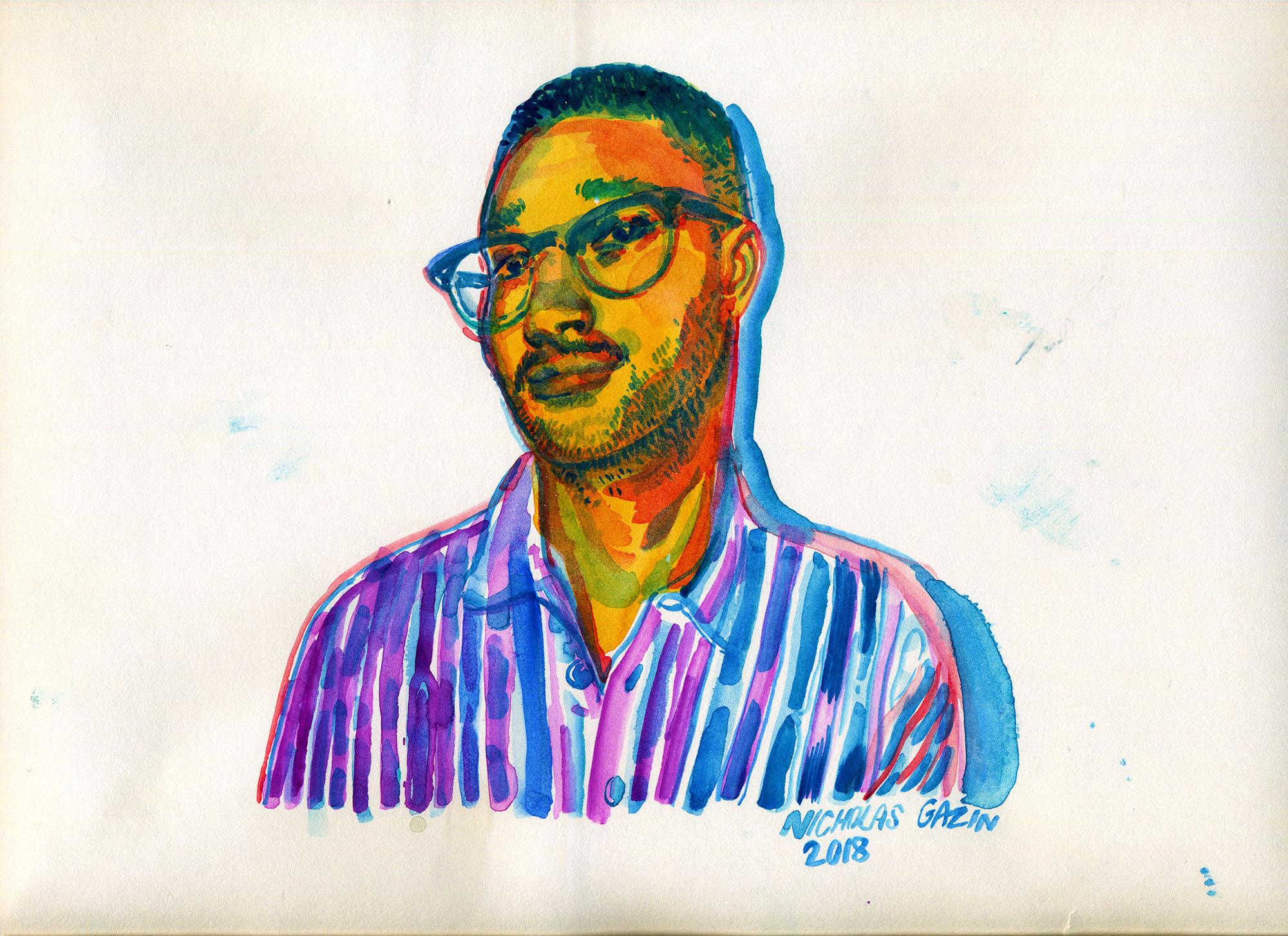
Of course, I didn’t get the memo. At the end of the summer of 2010, I took a 14-hour train ride from Downtown Cleveland to the Port Authority Bus Terminal with four of my mother’s suitcases filled to the brim with tight jeans and vinyl records. The long ride gave me time to pore over Dear Science. As recognized by Pitchfork’s Chris Dahlen at the time, it was their “slickest, catchiest” to date, with handclaps and hypnotic hooks, not to mention some tracks funky enough for you to shake your ass to. It opens with the propulsive “Halfway Home,” where Tunde rips The Trashmen’s infectious “Surfin’ Bird” flow and places it over blissed-out synths and buoyant percussion. That’s followed up by “Crying,” boasting Kyp’s Prince-like falsetto and a spry guitar riff that is so funky, it sounds like it could’ve been strummed by James Brown’s axeman, Catfish Collins.
The brightest song of the album is “Golden Age,” which features Kyp sounding like Michael Jackson on “Don’t Stop ‘Til You Get Enough” and big, punchy Africa ‘70-style horns played by Brooklyn-based Antibalas Afrobeat Orchestra. Kyp’s proclamation that “all this violence… goes away,” because the “age of miracles” is “coming round” is the kind of blind hope that I needed as I was changing my life around to live in a new, unfamiliar city. It also seemed to capture the excitement I had of entering into a new decade with a man in the White House who looked like me. I figured if something as unthinkable as Obama could could take place, anything was possible in my next chapter. So naturally, “Golden Age” was my anthem. And I played it on repeat on that long-ass train ride to NYC, as I built my shoddy Ikea furniture at my cramped one-bedroom apartment on North 11th street, and while I walked the streets of Williamsburg looking for my new tribe—hoping that I’d find them the same way Tunde found his.
Of course, things didn’t work out the way I imagined. Though Williamsburg is in Brooklyn, an incredibly diverse and eclectic borough, the neighborhood certainly didn’t feel like an enclave for artistically-inclined people of color. A lot of the cool new white people I met were working in creative industries, but it was mainly because their parents were paying their bills. They couldn’t relate to the crippling student debt I’d incurred just to get to the same place as them professionally, or why spending $50 for eggs and toast on a Sunday afternoon was offensive to me.
And while racism was something I was painfully familiar with growing up in a mostly white suburb of Cleveland and attending college in Appalachian Ohio, I never thought I’d run into it on North 12 and Driggs. But sure enough, while trying to live out an imagined Williamsburg night with friends from Ohio, a gang of bros called me a “nigger” because I was black and my friend a “faggot” for the way he was dressed. Then one of them sucker punched me in the face and literally broke my Tunde glasses.
I was pretty surprised by all of this, but I shouldn’t have been. Even the band who embodied the spirit of the Williamsburg’s post-9/11 cultural renaissance never really bought into the stories told about the neighborhood. As Kyp Malone told Pitchfork in 2011, “Sometimes people romanticize what Williamsburg used to be but, for me personally, there were always great people and totally bullshit people here. I want to say that there's a conformity here that didn't exist before, but it's really just a different kind now.”
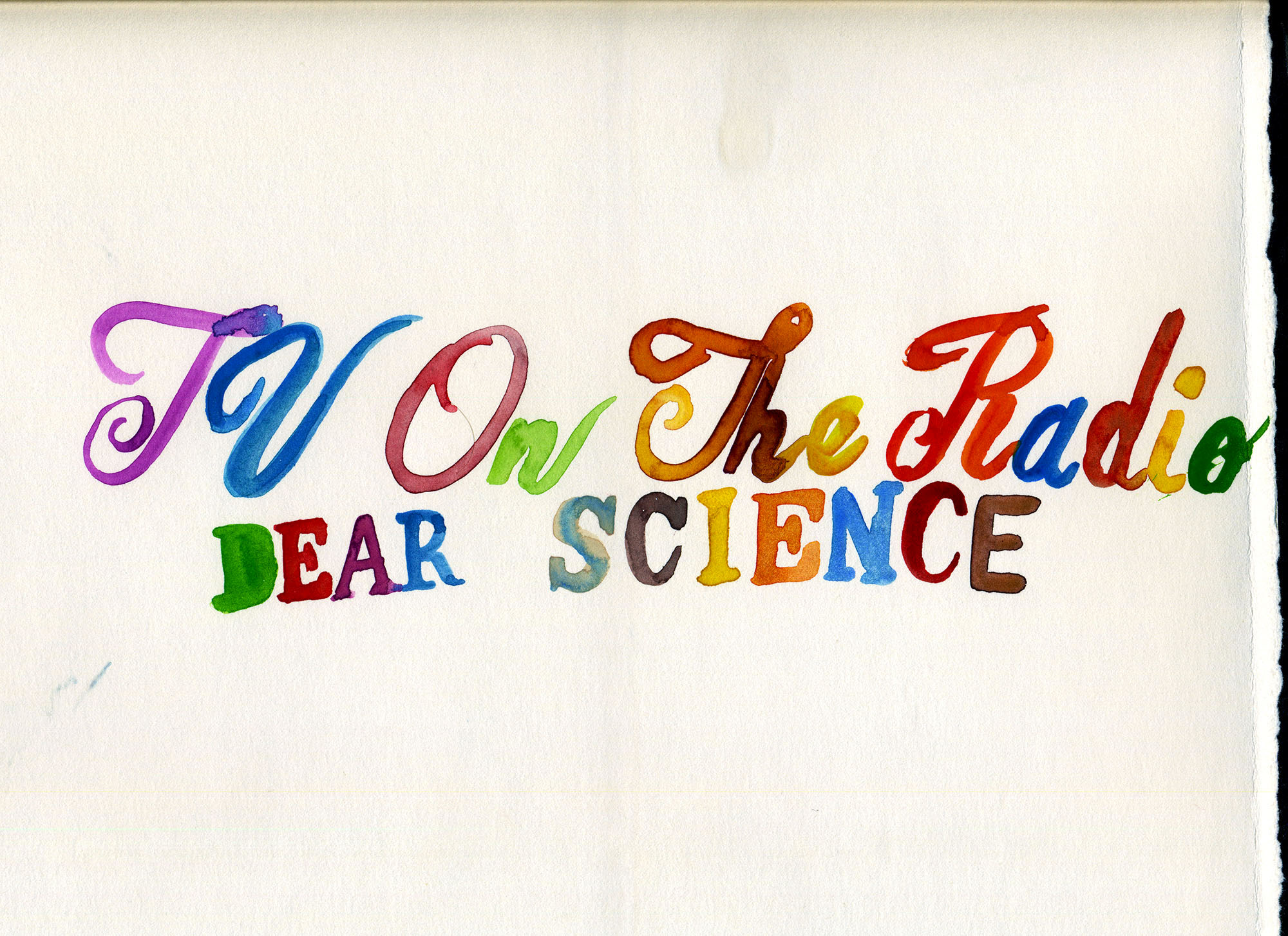
This kind of cynicism is actually all over Dear Science. While I didn’t see it so much at the time, the album is as world-weary and filled with dread as it is optimistic. As Chris Dahlen pointed out in his review of the album, it’s littered with lyrics about “the dead, death, and dying,” they just do it over dope, danceable beats.
While “Golden Age” used to be the heart of the album for me, these days I think its “Family Tree.” The haunting ballad is crooned by Tunde and accompanied with swirling strings. It’s touching and hopeful because it’s about love and relationships and it swells to a stunning crescendo at its climax like many of the band’s best songs. But the love Tunde sings about is not unfettered and free. Instead, it’s “brought down by an old idea whose time has come.” That old idea, according to a 2009 interview the AV Club did with Tunde, is “bigotry, which could relate to race, to gender, to sexuality.” Looking back, I can see the “roots of evil” Tunde sings about in “Family Tree” everywhere—from the street in Williamsburg where racists jumped me to the racist currently in the White House jumping this nation.
Ten years since the release of Dear Science, it’s clear to me that Williamsburg and America in general are not on fast track to the “Golden Age” as I might have naively thought when I was 21 years old. Instead, many of the things I tried to escape when I moved to New York feel more firmly entrenched.
See TV on the Radio celebrate the 10th anniversary of 'Dear Science' with a performance of the album at the Knockdown Center in Queens on Thursday September 20, 2018. Buy tickets here.
Follow Wilbert on Instagram.

